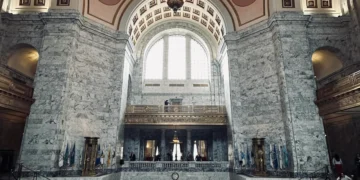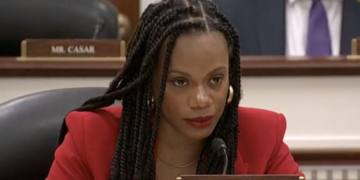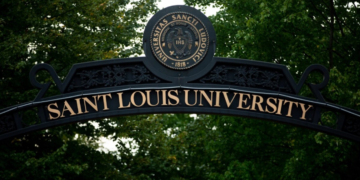Aug 5, 2024 Story by: Editor
Officials in Tulsa, Oklahoma, have formed a new commission to propose how reparations can be made for the 1921 massacre that devastated a prosperous Black community in the city.
The panel will evaluate a 2023 report for Tulsa and a 2001 state commission report on the Tulsa Race Massacre, during which a white mob killed up to 300 Black residents and destroyed the Greenwood District, known as “Black Wall Street.” Both reports advocate financial reparations, a measure Tulsa Mayor G.T. Bynum has opposed.
Reparations are likely to include a housing equity program, as the Beyond Apology Commission’s first task, according to Bynum’s announcement Thursday, is to establish such a program. This initiative would target survivors of the massacre, their descendants, and other residents of North Tulsa, where the massacre took place. Only two survivors are still alive today.
“One of the most challenging issues to navigate during my time as mayor has been that of reparations for the victims of the 1921 Tulsa Race Massacre and their families,” Bynum said in a statement.
He also referenced the Beyond Apology report from last year, which highlighted that reparations are seen by residents as more than just cash payments. The report recommended improved educational opportunities, housing and economic development, better health care, and the return of land to survivors and their descendants.
The massacre, a largely hidden chapter of racial violence, took place over two days in 1921. It obliterated a vibrant Black community and led to the internment of thousands of Black residents in camps managed by the National Guard.
Bynum, along with City Councilor Vanessa Hall-Harper, whose district includes the Greenwood area, introduced the 13-member commission. Hall-Harper commended Bynum for creating the commission and emphasized that reparations could encompass various forms of restitution, though she remains a staunch advocate for financial compensation.
“Anything can have a monetary value,” including scholarships and land, Hall-Harper said. “There may or may not be a transfer of greenbacks,” she added, but expressed disappointment if cash payments are not included in the reparations.
State Representative Monroe Nichols, chair of the Oklahoma Legislative Black Caucus and a candidate for Tulsa mayor, described the committee’s formation as a positive first step toward addressing the injustices of over a century ago.
“We’ve got to take this talk of reparations out of the political sense and focus on other areas,” Nichols stated, suggesting that reparations should emphasize home ownership and education. “Education is an area where we should really sink our teeth into quite a bit.”
The committee will consist of one appointee from the mayor and one from Hall-Harper, while a group of community members and city staff will recommend 11 others based on submitted applications.
The establishment of the committee comes amid an ongoing search for potential mass graves of victims, which began in 2020, and shortly after the first identification of remains previously unearthed during this search.
In June, the Oklahoma Supreme Court dismissed a lawsuit filed by the last two known survivors of the massacre, Viola Fletcher, 110, and Lessie Benningfield Randle, 109, who sought compensation for the destruction caused in 1921.
Their attorneys have asked the state court to reconsider the decision and have urged the U.S. Department of Justice to investigate the massacre under the Emmett Till Unsolved Civil Rights Crime Act of 2007. Source: NBC News

















